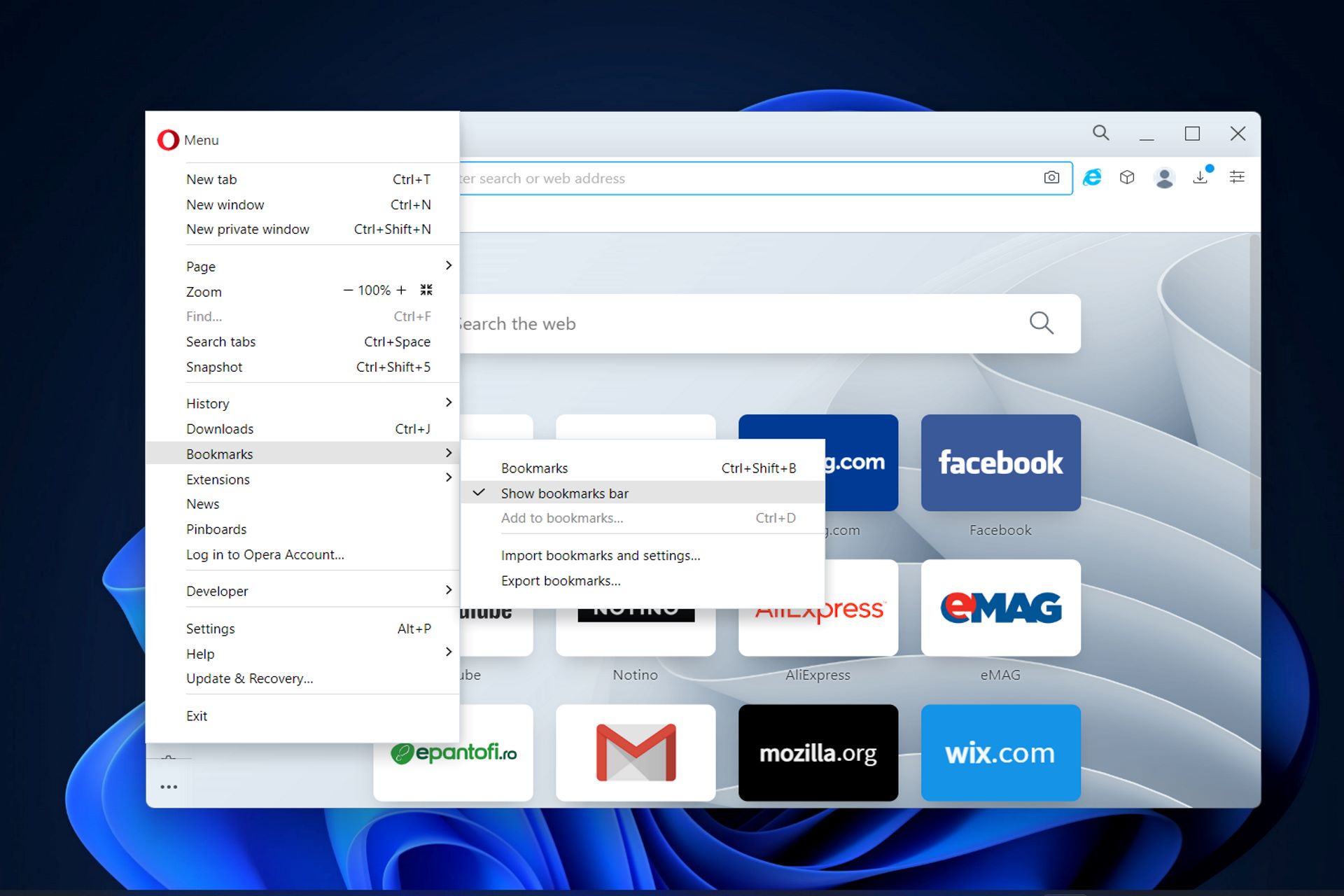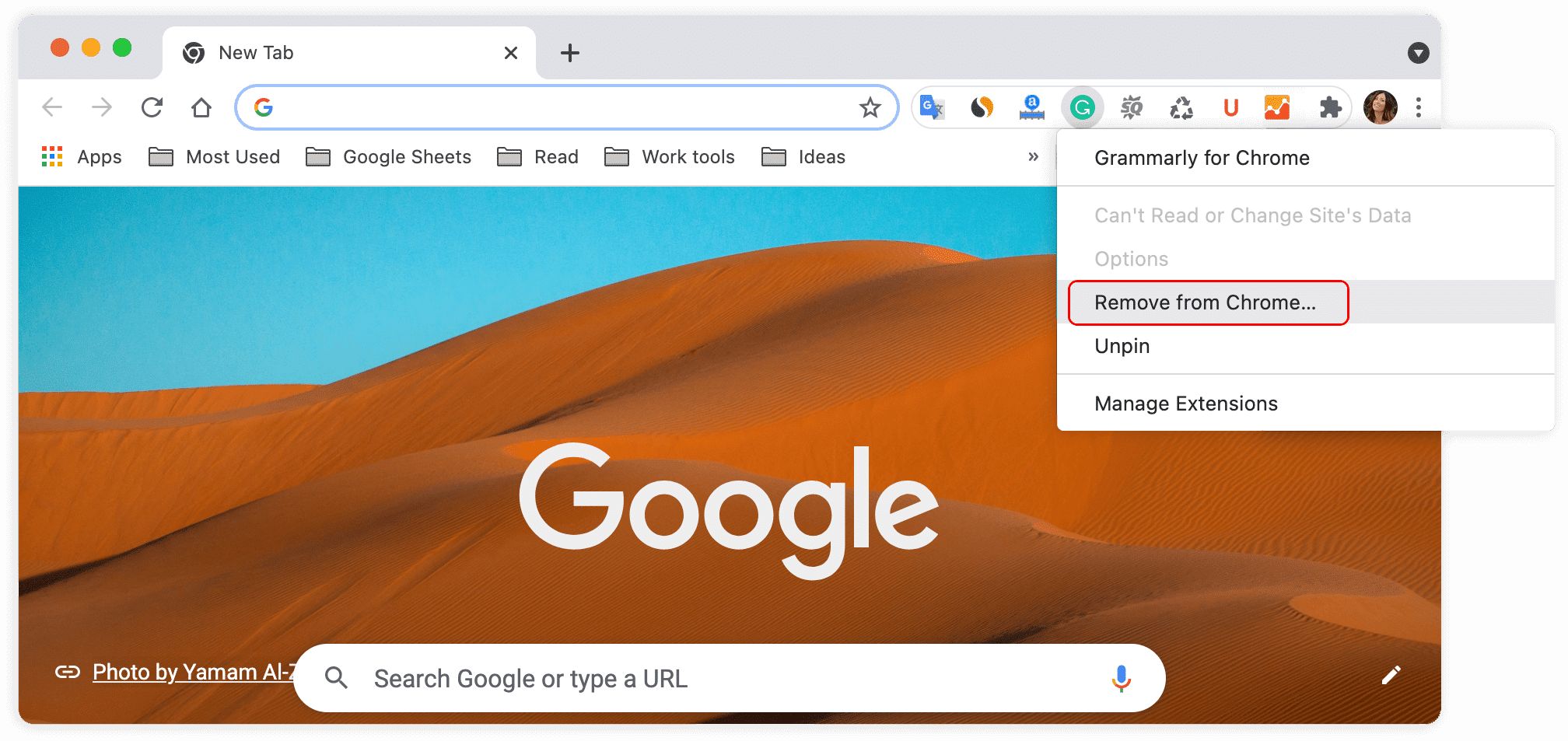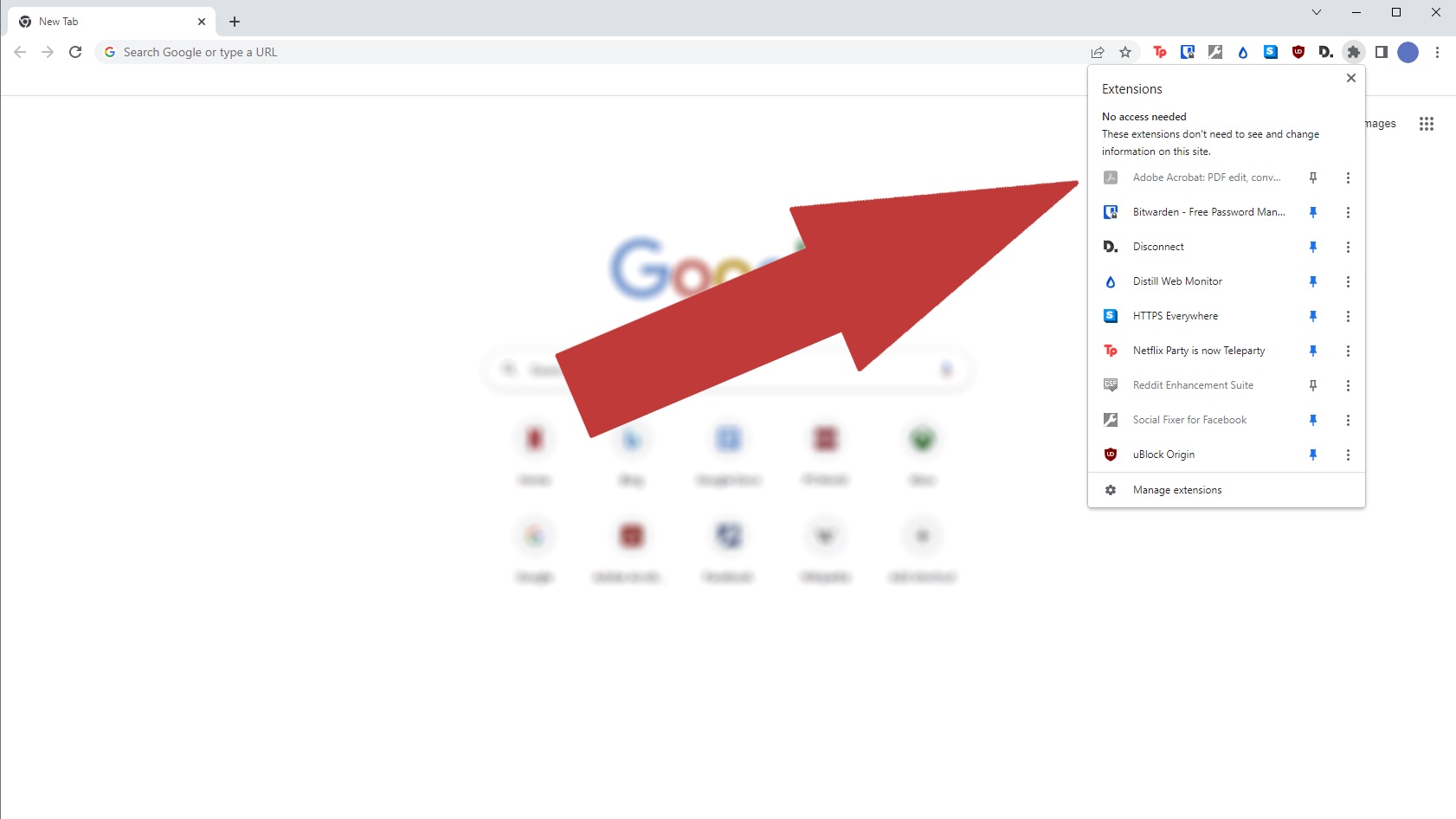Introduction
In today's digital age, web browsers have become an integral part of our daily lives, serving as gateways to the vast realm of the internet. As we navigate the online landscape, we often encounter various tools and functionalities that enhance our browsing experience. One such tool that has gained significant popularity is the browser extension.
Browser extensions, also known as add-ons or plugins, have revolutionized the way we interact with web browsers. These small software programs are designed to extend the capabilities of a web browser, offering users a wide array of features and customization options. Whether it's blocking ads, managing passwords, or enhancing productivity, browser extensions have become indispensable tools for millions of internet users worldwide.
As the demand for personalized and streamlined browsing experiences continues to grow, the significance of browser extensions cannot be overstated. With the ability to tailor the functionality of a web browser to suit individual preferences, these extensions have redefined the concept of user empowerment in the digital realm.
In this comprehensive guide, we will delve into the world of browser extensions, exploring their definition, types, functionality, benefits, and potential risks. By gaining a deeper understanding of these powerful tools, you will be better equipped to harness their potential while navigating the dynamic landscape of the internet. So, let's embark on this enlightening journey to unravel the mysteries and marvels of browser extensions.
Definition of Browser Extension
A browser extension, also referred to as a browser add-on or plugin, is a small software program that integrates with a web browser to enhance its functionality and provide additional features. These extensions are designed to modify or extend the capabilities of a web browser, allowing users to customize their browsing experience according to their preferences. By adding new functionalities or modifying existing ones, browser extensions empower users to tailor their web browser to suit their specific needs and requirements.
Browser extensions are typically developed using web technologies such as HTML, CSS, and JavaScript, making them lightweight and easy to install. They can be obtained from official browser extension stores or third-party websites, and once installed, they seamlessly integrate with the browser's interface, often appearing as icons or additional menu options within the browser window.
The scope of browser extensions is incredibly diverse, ranging from productivity tools and ad blockers to language translators and social media integrations. These extensions can significantly augment the browsing experience by providing features such as real-time spell checking, automatic form filling, and quick access to favorite websites. Furthermore, they can enhance security and privacy by offering features like VPN integration, password management, and anti-tracking functionalities.
One of the defining characteristics of browser extensions is their ability to extend the core functionality of a web browser without requiring any modifications to the browser itself. This modular approach allows users to selectively enhance their browsing experience by adding only the extensions that align with their specific needs and preferences.
In essence, browser extensions serve as versatile tools that empower users to personalize and optimize their web browsing experience. By seamlessly integrating with web browsers and offering a diverse range of functionalities, these extensions have become indispensable assets for users seeking to tailor their online interactions to suit their individual requirements.
Types of Browser Extensions
Browser extensions come in various forms, each catering to different user needs and preferences. Understanding the different types of browser extensions is essential for harnessing their full potential. Let's explore the diverse categories of browser extensions that have transformed the way we interact with web browsers:
-
Ad Blockers: These extensions are designed to block intrusive advertisements, pop-ups, and banners, providing users with a cleaner and more streamlined browsing experience. By eliminating distracting ads, ad blockers contribute to improved page loading times and enhanced privacy.
-
Productivity Tools: Productivity-focused extensions offer features such as task management, note-taking, and time tracking, enabling users to boost their efficiency while browsing. These tools often integrate seamlessly with popular productivity platforms, empowering users to manage their tasks and schedules directly from their web browser.
-
Security and Privacy Enhancers: Extensions in this category focus on bolstering the security and privacy of users while they browse the internet. They may include VPN services, password managers, anti-tracking tools, and encryption utilities, providing users with added layers of protection against online threats and privacy breaches.
-
Social Media Integrations: With the prevalence of social media platforms, extensions that facilitate seamless integration with popular social networks have gained traction. These extensions offer features such as quick sharing, social media management, and real-time notifications, allowing users to stay connected with their social circles while browsing the web.
-
Language Translators: Language translator extensions enable users to translate web content into their preferred languages with ease. Whether it's reading foreign news articles or browsing international websites, these extensions bridge language barriers and facilitate cross-cultural communication.
-
Developer Tools: Catering to the needs of web developers and designers, developer-focused extensions provide functionalities for debugging, code inspection, and performance optimization. These tools streamline the development process and enhance the capabilities of web development environments.
-
Entertainment and Lifestyle Enhancements: From video downloaders and music players to recipe finders and virtual pet simulators, these extensions cater to users seeking entertainment and lifestyle-related features within their web browsers. They add a touch of fun and convenience to the browsing experience.
-
Customization and Theming: For users who value personalization, customization and theming extensions offer the ability to modify the appearance and behavior of their web browser. These extensions provide options for customizing themes, color schemes, and interface elements, allowing users to create a browsing environment that reflects their unique style.
By recognizing the diverse categories of browser extensions, users can identify the tools that align with their specific needs and preferences, thereby enhancing their browsing experience and productivity. Whether it's enhancing security, boosting productivity, or adding a touch of personalization, browser extensions offer a myriad of possibilities for users to tailor their web browsing experience to suit their individual requirements.
How Browser Extensions Work
Browser extensions function as small, self-contained software programs that interact with a web browser to extend its capabilities and provide additional features. When a user installs a browser extension, it becomes integrated with the browser's framework, allowing it to modify or enhance various aspects of the browsing experience. The underlying mechanisms through which browser extensions operate can be elucidated by exploring their fundamental functionalities:
-
Integration with Browser APIs: Browser extensions leverage the application programming interfaces (APIs) provided by web browsers to access and manipulate browser functionalities. These APIs enable extensions to interact with browser components such as tabs, windows, bookmarks, and history, allowing them to modify and augment these elements based on user preferences.
-
Execution of Content Scripts: Content scripts, written in languages such as JavaScript, are a core component of browser extensions. These scripts are injected into web pages by the extensions, enabling them to interact with and modify the content and behavior of specific websites. Content scripts empower extensions to customize the appearance of web pages, manipulate DOM elements, and interact with web services, thereby enhancing the user's browsing experience.
-
User Interface Customization: Browser extensions often incorporate user interface elements, such as toolbar icons, context menu options, and pop-up windows, to provide users with intuitive access to their functionalities. These interface components seamlessly integrate with the browser's interface, allowing users to interact with the extension's features directly from the browser window.
-
Event Handling and Communication: Extensions utilize event handling mechanisms to respond to user actions and browser events. By capturing and processing events such as mouse clicks, keyboard inputs, and page loads, extensions can dynamically adapt their behavior and provide contextual functionalities. Additionally, extensions can communicate with external services and APIs to fetch data, synchronize user preferences, and facilitate seamless interactions with web-based platforms.
-
Permissions and Security: Browser extensions adhere to a permission model that governs their access to user data and browser functionalities. When users install an extension, they are prompted to grant specific permissions, ensuring that the extension operates within predefined boundaries and upholds user privacy and security. This permission-based approach mitigates the risk of unauthorized access and misuse of user data by extensions.
By harnessing these underlying mechanisms, browser extensions seamlessly integrate with web browsers, augmenting their capabilities and offering users a diverse array of functionalities. Whether it's enhancing productivity, bolstering security, or customizing the browsing experience, browser extensions operate as versatile tools that empower users to tailor their web interactions to align with their individual preferences and requirements.
Benefits of Using Browser Extensions
Browser extensions offer a myriad of benefits that significantly enhance the browsing experience and empower users to customize their interactions with web browsers. These benefits encompass a wide range of functionalities and conveniences, making browser extensions indispensable tools for users seeking to optimize their online activities. Let's delve into the compelling advantages of using browser extensions:
-
Enhanced Productivity: Productivity-focused extensions provide users with tools for task management, note-taking, and time tracking, enabling them to boost their efficiency while browsing. By seamlessly integrating these productivity tools into their web browser, users can streamline their workflow, manage their schedules, and stay organized without the need to switch between multiple applications.
-
Customized Browsing Experience: Browser extensions allow users to tailor their browsing experience according to their preferences. Whether it's customizing themes, modifying interface elements, or adding specific functionalities, extensions empower users to create a personalized environment that aligns with their unique style and requirements.
-
Improved Security and Privacy: Security and privacy-enhancing extensions offer features such as VPN integration, ad blocking, and password management, providing users with added layers of protection against online threats and privacy breaches. By leveraging these extensions, users can safeguard their sensitive information, mitigate tracking attempts, and browse the internet with enhanced security.
-
Streamlined Information Access: Language translators and content aggregation extensions facilitate seamless access to diverse information sources, breaking down language barriers and consolidating content from various sources. These extensions enable users to effortlessly access and comprehend content in their preferred languages, thereby broadening their informational horizons.
-
Entertainment and Convenience: Entertainment and lifestyle-focused extensions, such as video downloaders, music players, and recipe finders, add a touch of fun and convenience to the browsing experience. These extensions cater to users seeking entertainment and leisure activities within their web browser, offering a seamless integration of recreational features.
-
Seamless Social Media Integration: Social media integrations enable users to stay connected with their social circles while browsing the web. With features such as quick sharing, social media management, and real-time notifications, these extensions facilitate effortless interaction with popular social platforms, enhancing the overall social browsing experience.
By harnessing these benefits, users can optimize their web browsing experience, boost their productivity, and ensure a secure and personalized online interaction. Browser extensions serve as versatile tools that cater to diverse user needs, offering a wealth of functionalities that enrich the digital journey of users across the globe.
Risks and Concerns with Browser Extensions
While browser extensions offer a multitude of benefits, it is crucial for users to be aware of the potential risks and concerns associated with their usage. Understanding these risks is essential for maintaining a secure and reliable browsing environment. Here are the key considerations regarding the risks and concerns with browser extensions:
-
Security Vulnerabilities: Browser extensions, if not developed and maintained properly, can introduce security vulnerabilities into the user's browsing environment. Malicious actors may exploit these vulnerabilities to gain unauthorized access to sensitive user data, compromise system integrity, or execute harmful actions within the browser.
-
Privacy Risks: Certain browser extensions may collect and transmit user data without explicit consent, posing significant privacy risks. Users should be cautious when granting permissions to extensions, as indiscriminate access to browsing history, personal information, and online activities can lead to privacy breaches and unauthorized data usage.
-
Malware and Adware: Some browser extensions, particularly those obtained from unofficial or unverified sources, may contain malware or adware components. These malicious elements can disrupt the browsing experience, display intrusive advertisements, track user behavior, and compromise system security.
-
Performance Impacts: Inefficient or poorly designed browser extensions can degrade the performance of the web browser, leading to slow page loading times, increased memory usage, and overall system sluggishness. Users should be mindful of the impact that extensions have on the browser's performance and stability.
-
Compatibility Issues: Updates to web browsers or underlying technologies may render certain extensions incompatible or dysfunctional. Users may encounter issues such as extension crashes, interface inconsistencies, or feature malfunctions due to compatibility conflicts.
-
Overreaching Permissions: Some browser extensions request excessive permissions that surpass their intended functionalities, raising concerns about potential misuse of user data and system resources. Users should carefully review the permissions requested by extensions and exercise caution when granting access to sensitive resources.
-
Lack of Transparency: Transparency regarding the data collection practices, security measures, and update policies of browser extensions is essential for establishing user trust. Users should prioritize extensions from reputable developers and scrutinize the privacy policies and terms of use associated with each extension.
To mitigate these risks and concerns, users are advised to adhere to best practices when selecting and utilizing browser extensions. This includes obtaining extensions from official stores, reviewing user feedback and ratings, regularly updating extensions, and conducting periodic security audits of installed extensions. Additionally, users should maintain awareness of the permissions granted to each extension and promptly remove any extensions that exhibit suspicious behavior or pose potential security threats.
By exercising vigilance and adopting a proactive approach to extension management, users can maximize the benefits of browser extensions while safeguarding their online security and privacy.
Conclusion
In conclusion, browser extensions have emerged as indispensable tools that empower users to personalize, optimize, and secure their web browsing experience. These versatile software programs offer a diverse array of functionalities, ranging from productivity enhancements and security features to entertainment integrations and social media tools. By seamlessly integrating with web browsers and extending their capabilities, browser extensions cater to the diverse needs and preferences of users across the digital landscape.
The dynamic nature of browser extensions, coupled with their ability to augment the core functionalities of web browsers, has redefined the concept of user empowerment in the digital realm. Users can effortlessly tailor their browsing experience, enhance their productivity, and ensure a secure and personalized interaction with the online world. Whether it's blocking intrusive ads, managing passwords, or translating web content, browser extensions offer a wealth of possibilities for users to customize their digital journey.
However, it is essential for users to remain vigilant and informed about the potential risks associated with browser extensions, including security vulnerabilities, privacy concerns, and performance impacts. By adopting best practices in extension selection, permissions management, and security maintenance, users can mitigate these risks and ensure a safe and reliable browsing environment.
As the demand for personalized and streamlined browsing experiences continues to grow, the significance of browser extensions in shaping the digital landscape cannot be overstated. With their ability to adapt, innovate, and cater to evolving user needs, browser extensions stand as pivotal assets in the pursuit of a seamless and enriching web browsing experience.
In essence, browser extensions represent a paradigm shift in the way users interact with web browsers, offering a gateway to a world of customization, convenience, and security. By harnessing the potential of browser extensions while remaining mindful of associated risks, users can embark on a digital journey that is tailored to their unique preferences and requirements, thereby embracing the transformative power of these small yet impactful software companions.

























